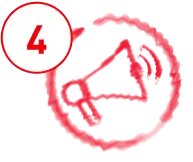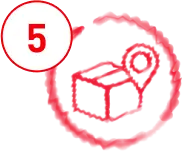Indication
The iovera° system is used to destroy tissue during surgical procedures by applying freezing cold. It can also be used to produce lesions in peripheral nervous tissue by the application of cold to the selected site for the blocking of pain. It is also indicated for the relief of pain and symptoms associated with osteoarthritis of the knee for up to 90 days. The iovera° system is not indicated for treatment of central nervous system tissue.
When stimulation compatible components are used, the iovera° system can also facilitate target nerve location by conducting electrical nerve stimulation from a compatible 3rd party nerve stimulator.
Important Safety Information
Contraindications
The iovera° system is contraindicated for use in patients with the following:
- Cryoglobulinemia, paroxysmal cold hemoglobinuria, cold urticaria, Raynaud’s disease, and open and/or infected wounds at or near the treatment site
Potential Complications
As with any surgical treatment that uses needle-based therapy and local anesthesia, there is a potential for site-specific reactions, including, but not limited to:
- Ecchymosis, edema, erythema, local pain and/or tenderness, and localized dysesthesia
Proper use of the device as described in the User Guide can help reduce or prevent the following complications:
- At the treatment site(s): injury to the skin related to application of cold or heat, hyper- or hypopigmentation, and skin dimpling
- Outside the treatment site(s): loss of motor function










